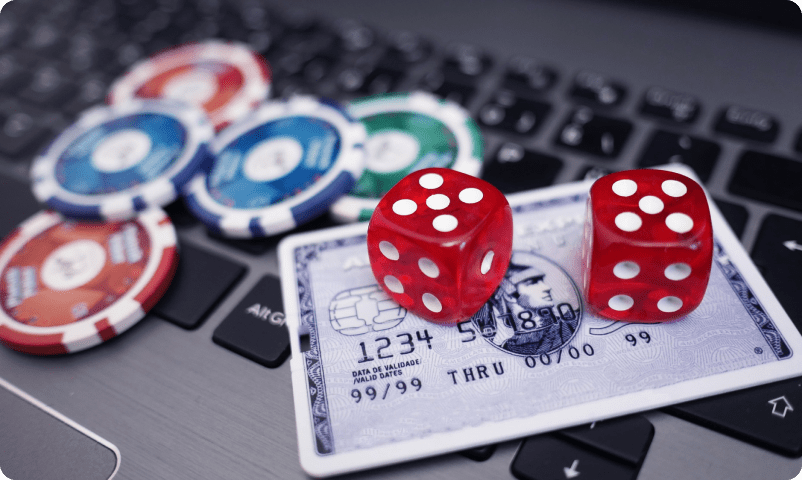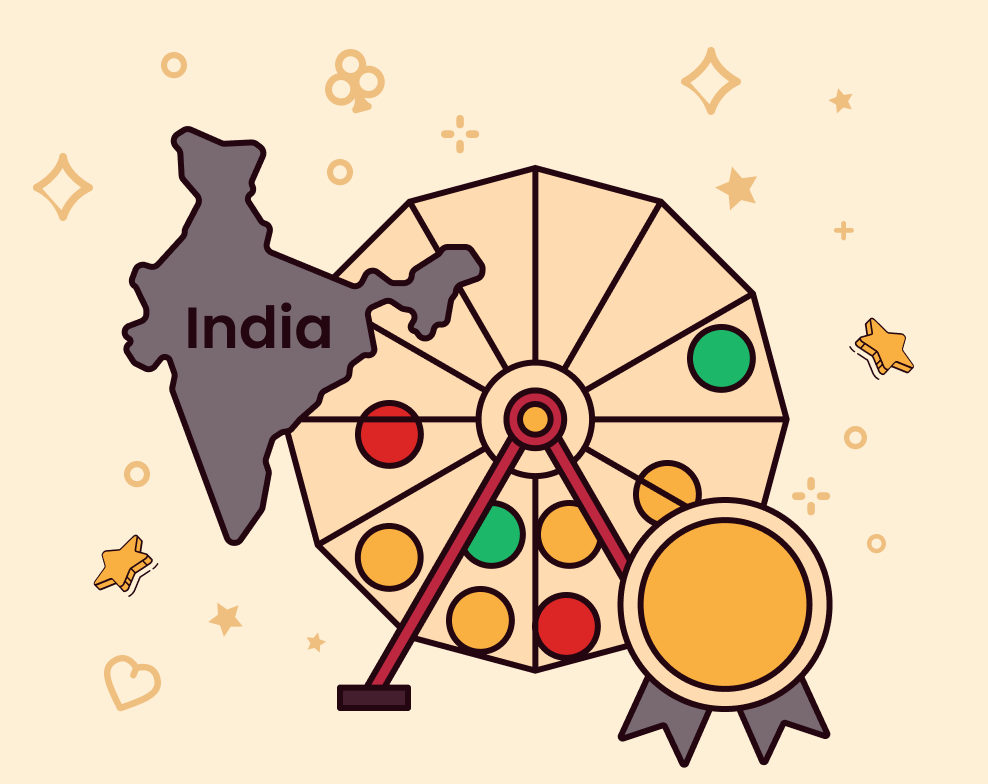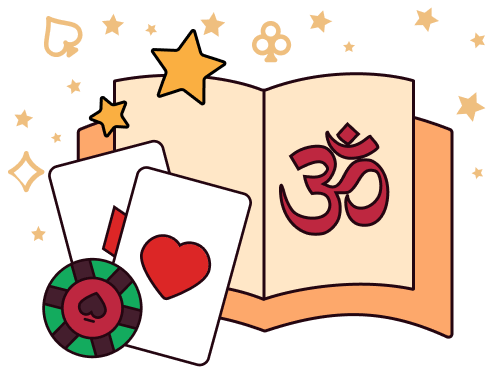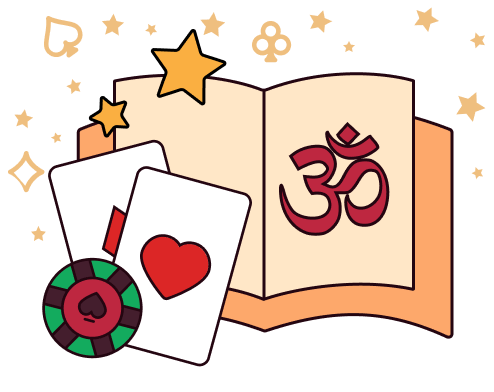Emphasizing On The Taxation Differences On Gambling With India And Other Countries

An unwise gambler and money are parted soon, but the witty one waits for the income tax to arrive. This line reveals the situation of Indian gamblers paying income taxes on their every income earned from gambling. Recently, distressing news is continuously coming in digital newspapers on implementing 28% of GST (goods and service tax) on online casino games, decided at the 50th Council board meeting. Is it acting as an existential threat to the booming casino industry, and do gamblers spell its death toll on this decision? This article discusses Indian taxation, how it differs from other international countries, and other belongings here.
From now, every segment would reveal a differentiation in the taxation of India and its casino gambling regulation with other countries in the world. So let's read ahead-
Regulation on Online Gambling in India and Other Countries
The basic question of every responsible gambler is: what does India say about gambling; is it legal? The answer is complicated because India consists of 29 states and 7 union territories where one governing body cannot decide or set any law or order on a particular subject. Every state has its law and legislation and is amended in its jurisdiction.
Public Gambling Act 1867: The central government has inputted a single law on the gambling course - the Public Gaming Act of 1867. This act states that any game related to betting with real money will be absconded and punished. But the games that involve skills are legal in India. However, the other states have their law and are being regulated in their jurisdiction. For example, Goa and Sikkim have legalized gambling within their jurisdiction, and many land-based casinos in their states attract gamblers to profit from staking real money on casino games like slots, table games, rummy, and many more.
Gambling Laws Across the World: Gambling is confined to legal orders implemented in every nation. They are distinctive in their actions making gambling partly legal. In some countries, they are strictly prohibited. For countries where gambling is legalized- For example, the USA has implemented a federal law for gambling, which tends to vary from state to state depending on the gambling type. Every state is free to regulate or prohibit the practice within its borders. On the other hand, locate Japan, where gambling was completely an act of punishment, recently legalized betting in sports activities, and various casinos operate in their nation. This enactment is due to upsurging economic growth in the nation.
Taxation on Casino Activities in India: Does the 28% GST tax levy on gamblingannoys Indian gamblers? The council decision revealed that the 28% GST tax charge on gambling activities and Gross Gaming Revenue, accessed from October 1, 2023, is somewhat annoying. In addition, a TDS of 30% is deducted from the winnings, including on the horse racing under actionable claims without distinction for a game of skill or chance. The application of tax will be on the full face value of a bet, making it a turnover-based tax. You must pay INR 30 for every earning of INR 100 as a GST charge.
Taxation Assessed Performing Casino Activities in Other Countries: Place your stake secretly, or Uncle Sam will compel every gambler to pay tax. Every country has to pay taxes, partly on their legal earnings or illegal gambling. Gamblers become very conscious when it comes to gambling. The government bodies design a separate tax structure to squeeze from gamblers' earnings. The USA tax government withholds the flat tax rate of 24% on your gambling winnings.
If you surf the internet, you may notice that taxation in other countries on casino gambling is so different. For example, Irish bookies pay a 1% tax on all bets placed by gamblers. A similar taxing formula is applied to Kenya's casinos as well. A 7.5% tax is applied on them on all winnings grabbed by their customers. Isn't it interesting? Here the gamblers are in the profit getting full winnings, but the casinos aren't. The tax would be charged on 35-80% of all steaks placed at any casinos in Austria.

Impact of Newest Implementation of Surcharged Taxation on Indian Gamblers
What does a country ask for its citizens? They ask for another tax every year. It indicates the upsurging taxing government deducts from the winnings of innocent gamblers. A big question revolves around every gambler's mind and how it will impact them and the casino industry; here is an anticipation on this subject: The rise in taxes can provoke Indian gamblers to make pessimistic and unplanned decisions. To satisfy their urge for gambling, they indulge in unlicensed and unauthorized casinos and betting stations, which will significantly damage their personal lives. Do Indian gamblers deserve these things? No.
Many gamblers say gambling is a human condition, not a duty. It is more of a love that cannot be measured. Although, the Indian casino market would scarcely be disturbed by these new amendments in taxation in the casino sector. Reputable casinos haven't seen any changes in their customers' numbers. Despite taxing amendments in the country, they still want to collect more gamblers on their platform.

Conclusion
Let's say you are a hard-working gambler, earning $100,000 a year from gambling. If your winnings go to the government office, you must work for 160 million years to revert the current debt. Isn't it rude to gamblers? Significantly yes, taxation on easy income is toxic to them because paying a portion of their winnings hurts them. On the other hand, new gamblers' winnings are pinched off by the upliftment and imposition of various taxations every year, and their incomes are completely low. What is left in their hand is a minimum of pennies that can make them happy from gambling.
The Latest News


Ana D.
•May 30, 2024
Lotteries and other forms of gambling have a colourful history in India. While lotteries are regulated under a central umbrella, how they are managed is subject to the discretion of state governments. However, the growing popularity of lotteries saw the Lotteries (Regulation) Act of 1998 and the Lotteries (Regulation) Rules 2010 introduced, which established detailed standards for the governments to follow.
Currently, lottery games are legal in 13 Indian states, though anyone of legal gambling age in India can buy international lottery tickets online. The ticket prices and prize pools of government lotteries in India vary depending on the lottery scheme and state in which it is regulated. Tickets for weekly draws begin at modest prices like ₹2 or ₹5 and increase for bumper draws and special schemes.


Akil Khan
•March 21, 2024
Whether you like it or not, luck plays a crucial role in gambling. And while many would argue that it’s an unreliable force, for many Indians, the ancient tradition of Vedic astrology offers a way to understand how luck works in the universe and how one could potentially manipulate it to work in one’s favour.
Vedic astrology (known as Jyotish in Sanskrit) is the practice of studying planetary positions, celestial influences, and karmic patterns to understand how these influence and shape human lives and destinies.
When it comes to gambling, some Indians look to Vedic astrology to boost their chances of success. By analysing astrological charts and horoscopes, and identifying cosmic connections, gamblers seek to find the most advantageous time to gamble, looking for lucky combinations of numbers, or even charms and rituals to help improve their chances.
Let’s look at this more closely:
Planetary configurations
"Muhurtha", an essential principle of Vedic astrology, indicates the opportune time to partake in certain activities based on planetary configurations. It also highlights when best to avoid certain activities. So, in the case of gambling, a player would wait for a favourable Muhurtha to maximise their chances of success.
Presence of the planets
Vedic astrology focuses on nine “grahas”, which are collectively referred to as the “navagrahas” (nava meaning nine). They include the sun (Surya), moon (Chandra), Mars (Mangala), Mercury (Budha), Jupiter (Brihaspati), Venus (Shukra), Saturn (Shani), Rahu (north node of the moon), and Ketu (south node of the moon). According to Vedic astrology, the planet Venus offers luxury and Jupiter provides immense wealth. A conjunction of Jupiter and Venus unafflicted with the moon is therefore said to bring good luck and prosperity.
Birth charts
Many Indians strongly believe in analysing their birth chart in every aspect of their life. This comes from Vedic astrology, which argues that the alignment of different celestial bodies at your birth can provide invaluable insights. In the case of betting, it could highlight a person’s gambling and risk-taking tendencies and subsequent strategies they could employ to maximise their chances of winning, translating into profits and success.
Astrology and numerology
Hindus love to rely on their favourite numbers, particularly when it comes to gambling, and generally prefer odd numbers over even. Seven and eight are considered auspicious numbers, representing success and prosperity. Many Hindus also use these numbers at the time of Diwali when, in some houses, gambling is a ritual. Another lucky sequence of numbers in Hinduism is 786, representing the Trinity of Brahma, Vishnu, and Shiva.


Akil Khan
•March 21, 2024
In casinos, we often hear phrases like good luck and good fortune. Not surprising, really, given how the majority of casino games are based primarily on chance, though some would claim that success is also down to mathematics and algorithms.
In any case, luck plays a crucial role in gambling, and many gamblers will have their own rituals they perform before games or even lucky charms they carry to improve their chances of winning.
Hinduism, one of the oldest practising religions in the world, believes in positive and negative energy, which could define your moves and outcomes. Furthermore, there are several ways one can channel these energies, whether through prayer or certain objects such as charms or symbols. We shall discuss these in more detail below.
Global Casino Association™
Casino.in is part of Global Casino Association™, the World’s largest casino affiliate network.
Copyright © 1995-2024, Casino.in, All Rights Reserved